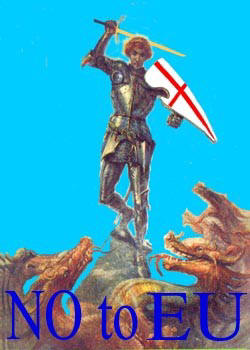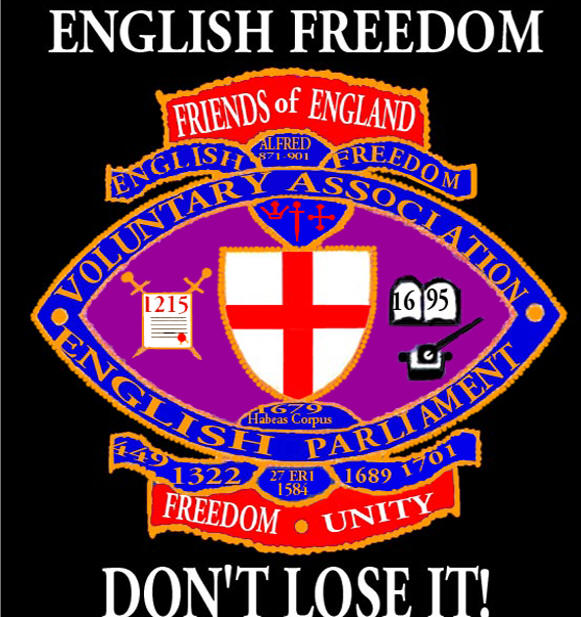|
|
|||
 |
 |
||
|
Established 1994-Elections 1997 and EU election 1999-Speech -1000's of Links - Archive-Top Topics and Stat |
|||
/ARCHIVE
A PEACEFUL ENGLISH REVOLUTION IS ON THE WAY-ALERT-1
|
|||
PART 1/9 Growth and Development of the English Parish. by Wray HuntIn the words of the author in 1932 the following chapters: “ To describe as far as possible the story of the
English parish not only as regards the religious but also the social life…It is
often forgotten that no man or boy can possibly understand the history of his
country if he does not understand its life and ideas.” [We
have it in mind to endeavour to bring to you each chapter in the life of the
parish of England covering the years 651 to 1890.] As
the author Wray Hunt further mentions the chapters of the periods of history
of the parish “to be accepted, not as a history of England but as a
companion … to be read together with the usual political histories, so that the
reader of these latter may be able to imagine the sort of people among who
those things happened that are” described in the following chapters. * *
[Our purpose in taking this
journey through English history by accounting the life of the community around and
within the Christian Church is to show those who like some Anglican clergyman
today who say that England is no longer a Christian country whereas it would be
impossible for our land of England to deny our Faith with so many reminders of our Christian
heritage in our living landscape- its past supporters at rest within the
precincts of our numerous places of worship since St Augustine came to our
shores over 1400 years ago and Christian Monarchy in England. We
do not deny that those who attend Anglican Church services has been steadily
declining for half a century though some Christian communities who have
adhered more strictly to Christian doctrine have either held their flock or
even in some cases have increased their congregation. As
is outlined elsewhere in our Bulletin ’A Defence of Christianity’ by C.E.M.Joad-philosopher-
writer (1951) that so far from Christianity becoming a world-wide religion,
Christ taught that it would be a religion of the few. In
other parts of the world –USA, Africa and many other countries there has been a
revival taking place and it is beginning in our own homeland. So the clergyman who told his flock in
October 2004, that England is no longer a Christian country had better withdraw
his judgement because there is and will be a return to Christian Values because
the other possibility will not succeed when we see the Christian heritage which meets our eyes in Hamlet, Village,
Town and City which are a constant reminder that we are never far from our
roots and for many of us still when we reach our final resting place.
The escalating crime, drug and other destroyers of a
community have been having their way for the past 40 years and only a dramatic realisation
of the dangers now with us all will there be a return to the Christian
Values which can only make our lives better and safer. Within our country we have those of other Faiths who
are not so negligent of their mission and it should be a reminder to us all
that a Religious belief should be accompanied by a moral accountability. We have seen how the grievous free-for-all offered by
the politicians in a secular society can take their toll unless there is a
moral dimension. Don’t blame the government but ourselves in being enticed into
bottomless black hole where no moral accountability seems necessary or possible. Those
responsible for protecting the community such as Chief Police Constables have
been warning for decades of the problems which would follow the relaxation of
the Drug, Drink and now the Betting laws apart from the lack of discipline in
the home and in the school and community.] * * * Chapter 1/ X1X The King’s Hall(AD 651-670) I have given this title to the first chapter because, strange as it may seem, it is to a king’s hall that we must go if we are to understand the beginning of the English parish. The Romans, though some of them were Christians – and we know that there were churches in Roman Britain – knew nothing of the parish, and even the earliest missionaries to the pagan English knew nothing of it. Yet
it is certain that had the parish not developed English life today would be something
very unlike the life that we know, as will be clear enough when, in the course
of [the following Chapters] we consider what the parish did. But
first we must go to the king’s hall, northward, into the bleak moorlands of
Yorkshire. There, in a town that we can
call Whitby, we shall find what we seek. For
a king’s dwelling the place is bare and uninviting. Built of rough-hewn timber, the cold wind of the north howls
about it, through the unglazed openings that serve as windows, and down the
rough hole in the roof that is the sole-chimney. Yet once inside we come into the midst of a very august assembly. There
is a rough board table running down the centre of the long smoke-blackened
room. At the head sits a man dressed in
course garments, but they are set off by a collar of fur and a great rudely carved
gold chain. He wears on his head a rude
gold circlet for a crown. That is Oswy;
King of the Northumbrians and at the moment the most powerful king in England. On
his left hand sits one clad in a long grey robe, a man whose gentle face is
lined and seamed with years of hard toil, of travelling up and down the land when
roads were mere tracks through unbroken forest or over desolate heath, and a
traveller must face the perils of starvation and of wild beasts as soon as he
leaves the shelter of the town or village and sets his face toward the next
goal of his journey. The man’s head is
curiously shaven, bald from crown to the forehead, with a crescent of hair
marking the edge of the shaven patch. This
is Colman, leader of the Irish Christian party. Opposite
sits a man similarly clad in a plain grey robe. But this man’s face is stronger altogether. The heavy line between his brows, the
obstinate set of the thin lips, tell of stubborn vigour. This man can be almost mulish in his
obstinacy, and at best is a determined, pushing person, sincere enough perhaps
in his religion, but utterly incapable of appreciating anyone else’s point of
view. This
is Wilfrid, leader of the Roman Church party in Northumbria. His head is shaved too, but not like Colman’s. A little bald patch at the crown surrounded
by a ring of hair is his fashion. H despises
Colman’s method of tonsuring, as this head-shaving is called. He says that the man who tried to buy from the
Apostles the gift of the Holy Ghost wore his hair like that, and from his name,
Simon Magus, Wilfred and his party nickname the others Magians. Indeed, Wilfred has just been arguing this
point with his Irish opponent. The
King looks from one party to the other as if in doubt. At last he speaks. “ We have heard Colman,” he says, “that our Lord
spake to the Apostle Peter, saying, ‘Thou art Peter, and upon this rock will I
build my Church.’ Also
that our lord said to this same blessed Peter, ‘I will give unto thee
the keys of he kingdom of heaven: and whatsoever thou shalt loose on earth
shall be loosed in heaven.” Tell
me, Colman, has your St Columba any such promise?” For
a moment the Irish missionary is dumb; he sees the trap. Then with a sigh, he shakes his head. “Then,” continues the King, “ it were best that I agreed with the
followers of Peter, lest when my turn comes he lock me out of heaven.” The
conference is over. Colman rises with a
sigh. His work in England is done. There is nothing left now but to return to
Iona, the Holy Island off the rugged Scottish coast, where his abbey lies. Wilfred smiles triumphantly. His party in the
Church have won over to their side the strongest king in England, in whose
dominions, moreover, the Irish Church was most powerful. But
the subtle King has is own secret. He
reverences and respects St Peter, but it is what St Peter’s successors have
done that really moves him to act. For
the Irish, or Celtic Church, good men as its clergy might be, could never have developed
the parish system, and that the Irish Church might win over all England appeared
at one time possible. There
was no head of the Irish Church. Each
abbot was lord of his own abbey, and arranged as he thought good for the
religious needs of the surrounding districts.
Sometimes there would be a dispute with a neighbouring abbey, and then,
since there was no common superior to whom the case might go – for the bishop,
so important in the Roman Church, was beneath the abbot in the Celtic Church –quaint
things sometimes happened. There
are stories of pitched battles between monks of rival Irish abbeys when some
long-standing dispute had grown more than usually bitter. But Oswy wanted to unite England under his rule, and
such a Church [Celtic] as this, a group of disunited abbeys owning no common
head, would hinder rather than help him in this object. On the other hand, the Roman Church, every member of
which must submit to the Pope, with its bishops and archbishops to keep order
and discipline each in his own sphere, acted according to known and
definite rules, would be, he hoped, the means of uniting rather than dividing
England. That
is why in telling the story of the parish we go first to the king’s hall, where
at the Synod of Whitby AD 664 it was decided that Roman, not Celtic
Christianity should be the religion of England. For had the verdict gone the other way it is doubtful if the
parish as we know it would ever have come into existence. * * * [Further Chapters of our
journey through the Parish life of England will follow] [Fonts
altered-bolding used –comments in brackets]
2005 |
||
